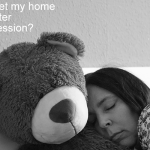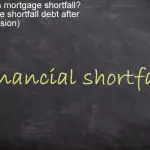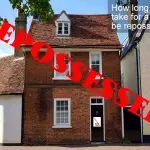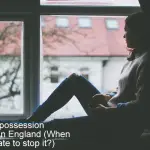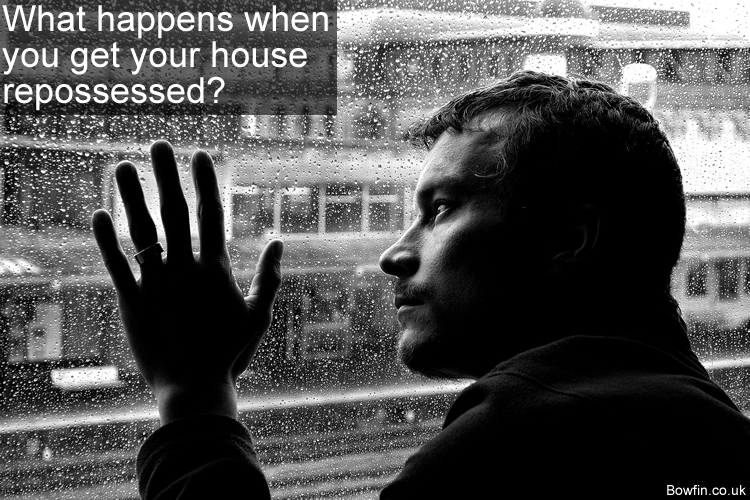
If you are contemplating repossession or if you are facing repossession, you many want to find out what happens when you get your house repossessed.
What happens when you get your house repossessed? This is generally between 28-56 days after the possession court hearing.
After your house is repossessed it will be sold to repay your mortgage. But your mortgage lender will probably sell at auction, which will likely be at under market value. So you may end up with a mortgage shortfall. Also, you’re still responsible for mortgage interest until your home is sold to repay what you owe.
Once the court decides that your home can be repossessed by your mortgage lender you don’t have to pay any more instalments on your mortgage.
What happens at a repossession court hearing?
The final stage of repossession, before you have to move out of your home, is the court hearing for a judge to decide on your repossession case.
More Reading: Home repossession process in The UK (When is it too late to stop it?)
At your court repossession hearing the judge decides if your mortgage lender can repossess your home. You have more chance of keeping your home if you attend the court hearing and if you’ve taken steps to prevent it from happening.
You have the opportunity to explain your situation to the judge, but if it doesn’t go your way, he will rule in the bank’s favour for your home to be repossessed. He will then give you a set time to move out, which is usually between 28-56 days.
More Reading: How long does it take for a home to be repossessed in the UK?
But what happens when you get your house repossessed?
What happens when you get your house repossessed?
Once your house has been repossessed, your bank will sell it as soon as possible. Banks are not in the property market and don’t want to hold onto properties. They are also obliged to sell it as quickly as they can, as you’re still being charged interest on the outstanding mortgage balance.
Your mortgage lender can put the property on the market with an estate agent or sell it at auction. But more often than not the price at which your lender will sell your house won’t be as much as you’d get for it if you sold it yourself.
However, your lender is legally responsible for selling your property for the best price they can reasonably get. But if it’s sold at action, the ‘hammer-price‘ will depend on the interest your property gets on the day.
More Reading: How Many Months Mortgage Arrears Before Repossession in the UK
What’s the next step after having your home repossessed?
Once your house has been sold at auction or through an estate agent, what happens next? Your lender will use the sale proceeds to repay the following amounts:
- The amount outstanding on your mortgage.
- Any additional interest that’s accrued since the repossession hearing and decision by the judge.
- Your lender’s legal costs, which will include the costs of going to court and the court fees.
- The selling costs, which will either be the estate agents commission or the auction fees.
- Bills for any repairs and maintenance or other costs, which the bank has suffered before your house is sold.
- Repayment of any other loans that were secured on your property.
Once the above amounts have been settled, any amount left over will be repaid to you. But if there’s a balance, which is referred to as a mortgage shortfall, the bank can ask you to repay.
More Reading: What is a mortgage shortfall? (Mortgage shortfall debt after repossession)
How does a mortgage shortfall arise?
If the sale price doesn’t cover your mortgage arrears and what you owe, this will result in a mortgage shortfall. But how can this arise?
A mortgage shortfall can arise if:
- Your arrears are very high at the point of repossession.
- Where at the time you were repossessed, you were in negative equity.
- If you didn’t have a large enough amount of equity in your property to cover the costs and the sale price wasn’t as much as needed to cover what was owed.
Where you don’t pay the shortfall, your mortgage lender can pursue you for the amount owed through the courts. If necessary, your lender can make you bankrupt for none payment.
What are your rights after your house has been repossessed?
Once your house has been repossessed, you still have rights. These include the following rights where you can challenge your mortgage lender if they don’t act reasonably.
- If you think your mortgage lender is delaying the sale, you can apply to the court for an order telling the lender to sell the property more quickly. But you may need to seek legal advice, before you take court action.
- You can complain to your mortgage lender if you think they haven’t sold your property at the best price they can reasonably get. If you aren’t happy with your bank’s response you can complain to the Financial Services Ombudsman.
More Reading: How can I stop my house being repossessed? (12 Options To Stop it)
You want to try and avoid repossession at all costs. If you are in the situation where you’re contemplating repossession or if you are already going through the repossession process, please contact us to see what help we can give you.
I hope you’ve got something from reading this article on what happens when you get your house repossessed
If you’ve got something from this article on “what happens when you get your house repossessed” please share it on your favourite social media site.
Also, if you have any questions, please feel free to comment below too. Alternatively, if you need more help, please feel free to contact us on our contact us page here. Or join the discussion and ask your question in the property forum.

